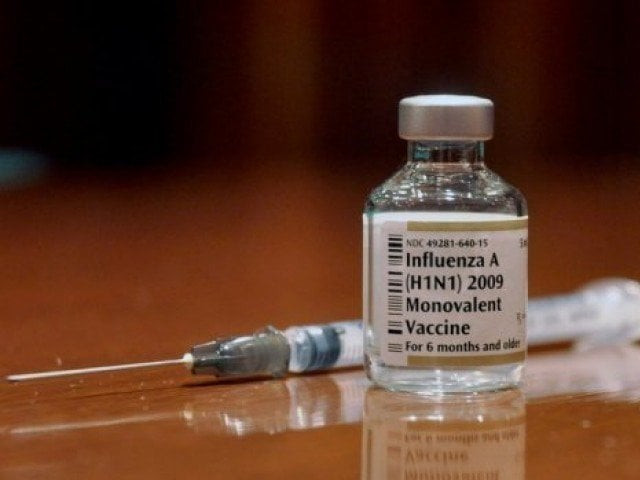Denial or rumour? Health dept denies death from swine flu
Says Sadiqabad resident who died on February 9 was suffering from regular flu, chest infection

PHOTO: AFP
According to health officials, the 65-year-old resident of Sadiqabad, Sirajul Hassan Arain, died on February 9 but, they claimed, he was suffering from regular flu and chest infection, not the H1N1 virus. He was admitted at a private hospital on February 4, said Karachi health director Dr Zafar Ejaz. Recently, two people in Karachi tested positive for the virus and died - an infant and an elderly person. Health officials have also confirmed that 22 others have been diagnosed with the same influenza but they are out of danger and are not admitted at any hospital. The national health authorities have already put hospitals on alert after cases surfaced in different cities of Punjab, including Multan and Lahore.
Despite the paranoia surrounding the spread of swine flu in Sindh, the provincial health officials are confident that the virus is not a threat. "There is no need to panic about swine flu in the city," Dr Ejaz told The Express Tribune last week, before listing the necessary precautions.
Patient suffering from swine flu dies at hospital
The physically weak, including children and aged persons, should get vaccinated immediately. "Patients with the flu must take plenty of water, rest and consult a doctor in case of severity," he advised. Otherwise, he added, there is nothing to worry about. Dr Naseem Salahuddin, an infectious diseases specialist at the Indus Hospital, said that swine flu bears many similarities with the common flu. "We have all experienced influenza. This is same," she explained. A runny nose, sore throat, cough, fever and body-ache are symptoms of the H1N1 influenza, she said, but in severe conditions there is a chance of diarrhoea. "The cough continuous for three to five days and weakness is felt for around six days," Dr Salahuddin said. She urged infected persons to keep their fevers under control by using Panadol tablets.
Published in The Express Tribune, February 14th, 2016.



















COMMENTS
Comments are moderated and generally will be posted if they are on-topic and not abusive.
For more information, please see our Comments FAQ